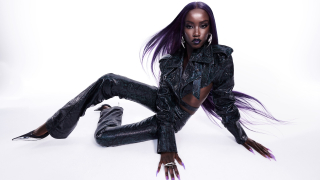The criminal justice system is not “screwed up,” St. Louis County Prosecutor Bob McCulloch brazenly stated to a packed assembly of law students, faculty and protesters.
“Sometimes you just don’t get what you want.”
The day was Friday, February 20th. The event: “The Thin Blue Line: Policing Post-Ferguson,” a highly-anticipated symposium hosted by St. Louis University (SLU) School of Law that had been publicly challenged by the Black Law Student Association and other SLU other students, and faculty. This would be McCulloch’s first public appearance since November 24, 2014, the night he announced that the grand jury would not indict Officer Darren Wilson for killing 18-year old Mike Brown. The night Ferguson and 170 cities around the world plunged even deeper into rebellion against police brutality.
“This year’s Public Law Review Symposium will address the legal challenges to law enforcement,” reads the U.S. flag emblazoned flyer for the event. “Today’s law enforcement officers face new hurdles in an era marked by social media, smart phones, a 24-hour news cycle, citizen journalists, and a growing divide between local police and the people they are called to serve. With the world’s attention turned on Ferguson, Missouri, critique of law enforcement procedure, tactics and behavior is at an all-time high.”
The first to present and, honestly, the reason the news cameras showed up, McCulloch offered an elementary primer, a tiresome yawner, on the grand jury process to conservative-types – law students, legal experts, and a vocal collective of “cop groupies,” single White women with fried hair and agitated skin, who appear to be very fed up with the protests, but hopeful about dating men in blue.
“My people were not wrong.” McCulloch, a Democrat who has served as prosecuting attorney since 1991, often running unopposed and often winning by wide margins when he’s had an opponent, side-stepped questions and low-key insulted audience members who challenged the choices he made about the case, like allowing unreliable witnesses and exaggerated testimonies. He acknowledged being anxious about the civil rights violations that Attorney General Eric Holder’s department is investigating, not because he thought he might get in trouble, but because he said those investigations take “forever.”
The heavily secured affair, with police and armed guards posted up at every entrance, didn’t stop protesters, both Black and White from making their presence known. First, students in judicial robes stood up shortly after he was introduced to place McCulloch on “trial.” The audience pulsated with nervous tension. McCulloch was visibly outraged and called upon event organizers to “do something.” When he didn’t receive an immediate response, he talked over the protesters, demeaning them. A few minutes later, another wave of young people rose up, singing “Justice for Mike Brown.” McCulloch fumed. White audience members yelled at police to “remove them!”
Each time the protesters interrupted, McCulloch responded with righteous indignation, indicating there was a wrong and a right way to engage him. The same people who watched him explain his way through months of a grand jury process that could have literally taken days were expected to hold their peace–and stay in their place–until the question and answer period began.
“I’m always amazed that those who profess that they’re exercising their right to free speech will never allow anyone else to exercise that same right.” McCulloch. Smug. Entitled. Disingenuous. The man at the mic, who is gesturing for police to remove those who offend him and egging on his seething supporters. This from the man who’d made himself unavailable to the public for more than two months, furthering the belief that police and elected officials are neither accountable nor responsive to constituent concerns. This from a man who many legal experts believe intentionally overloaded jurors with conflicting evidence and testimonies to prevent an indictment. This from a man who refused to recuse himself of a case that many believed he was too biased to present, given his deep emotional ties to policing–McCulloch’s father was a police officer, killed while on duty; his brother, cousin, and other family members are police. He’d often been quoted as saying that since he couldn’t become a police officer (due to having had his leg amputated as a child), he became the next best thing: a prosecutor.
“If justice was the intended result and if he truly valued the integrity of the case and the system, he should have immediately recused himself and requested the appointment of a special prosecutor,” asserts Montague Simmons, Chair of the Organization for Black Struggle, based in St. Louis. “To be clear, the way use of force laws currently exist in the state of Missouri, this would not have guaranteed an indictment, but the case would not forever carry the taint of his participation.”
During his talk, McCulloch suggested that if the case had been high-profile enough, he could have removed himself, but he remained to see the process all the way through. According to St. Louis County Police Chief Jon Belmar, CNN had 70 reporters on the ground last August. The Ferguson Protesters were on the cover of Time magazine. #FergusonOctober was one of the highest trending hashtags on Twitter. But this did not meet his standard for “high-profile.”
When the final wave of protesters broke into “I Can’t Breathe,” chanting “Black Lives Matter” as they were being escorted out, McCulloch responded: “I’m pretty certain all lives matter.”
The audience applauded. I stood in the media section, filming, the only Black woman reporting on the event. It took everything in my being to keep my mouth closed. I searched and found the face of Kami Chavis Simmons, who could not conceal her dismay. The only African American speaker, Simmons is the Director of the Criminal Justice Program and a Professor of Law at Wake Forest University. She would later ask McCulloch how he planned to go about re-establishing “confidence and legitimacy regarding the criminal justice system in Ferguson and the surrounding areas.” Before responding, he requested her credentials, even though she was seated with the other distinguished, invited guests. Her answer – she’d served as Assistant United States Attorney for the District of Columbia. Bam! He chuckled, cocky, conceding his respect, but he did not address her question directly.
Jonathan Pulphus, a sophomore at SLU who led more than a thousand protesters onto campus last fall and organized a week-long encampment that became known as #OccupySLU, was one of several who disrupted McCulloch: “We didn’t feel that the reason for having him there fulfilled the purpose that was set forth by the student organization that brought him.”
Alisha Sonnier, another student organizer for #OccupySLU commented: “We protested because Bob McCulloch didn’t do his job as a prosecuting attorney in the Michael Brown case. It’s like him being rewarded for doing things that he did improperly.”
Sonnier adds that McCulloch treated the the audience as if “nobody really understands the legal process and he really did do his job despite what people say” observing “that room was full of lawyers and law students and a lot of the information he gave was very basic.”
Both students were instrumental in negotiating the Clocktower Accords, a 13-point agreement that the university pursued in order to end the #OccupySLU encampment, a peaceful gathering that consisted of teach-ins about racial equity and social justice. Among those promises made were increased monies for African American student retention, scholarships, and academic programs. McCulloch’s appearance at SLU coincides with parent, student and alumni pushback to the Accords.
Himself an alum of SLU’s law school, McCulloch exited shortly after his talk. People swarmed to shake his hand and smile in his face. With him went the cameras and much of the tension. Chief Belmar and several other issue experts offered in-depth analysis from morning until afternoon, primarily focusing on the lessons of Ferguson and reforming police culture.
I listened, noting that the ideas about how to make police friendlier, less racist and more service-oriented, were well-intentioned, but genuinely disconnected from a difficult truth that the protesters have embraced. Many police simply are not good people. Others still are so deeply poisoned by racist bias that no amount of re-training can make the streets safer for the Black people they are charged with ‘serving and protecting.’ Sensitivity training will not transform White supremacy or patriarchy.
What side are you on, friends? What side are you on?” Haunting words from the protesters that hung in the air long after they had been expelled. On this day, given the event title and theme, the question became even more pointed. McCulloch is emblematic of the thin blue line that separates our government from the true wants and desires of the people. He embodies the type of White privilege that the system was created to uphold, promote, and protect. From his perspective, of course, it’s not “screwed up.” He is the law. He studied the law and can manipulate it according to his own ideological dysfunction. He can do this with impunity and then explain his indiscretions through legalese and administrative shenanigans.
The thin blue line. What side are you on, my people? What side are you on?
Katina Parker is a filmmaker, photographer, and activist. To follow her documentation work in Ferguson go to www.facebook.com/dontshootsof. To receive updates about her Virtual Freedom School, a space where theory meets action, go to www.facebook.com/virtfreeschool and follow her on Twitter – @katinaparker.













